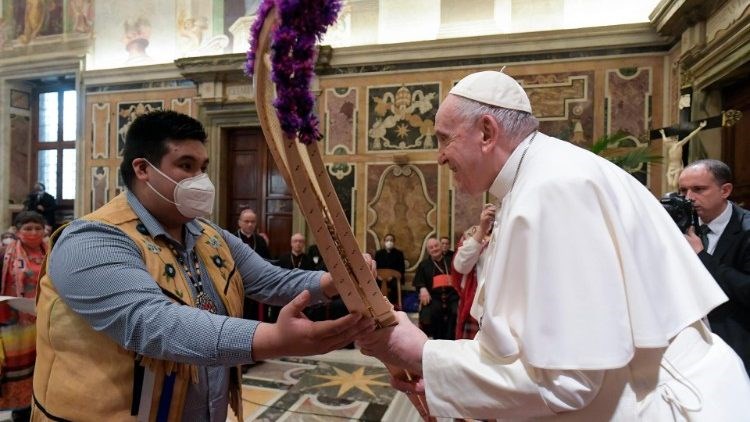SASKATOON — The Canadian Catholic Conference of Bishops is set to release the results of their four-day plenary assembly in Cornwall, Ont. that brought together members for the first in-person meetings since 2019.
A press conference will be held on Thursday, Sept. 29, after the assembly, which is a gathering of approximately 90 bishops across the country. The press conference will be live streamed so people can watch it virtually.
Included in the discussions of the four-day assembly are Indigenous healing and reconciliation, the “synod on synodality,” fostering a safe environment and sub-committee reports in areas of pastoral care and responsibility including liturgy, catechesis and evangelization.
The CCCB, in a statement sent to SASKTODAY, said Canadian bishops continue to reflect on the progress made during the meeting held at the Vatican between Indigenous delegates and Pope Francis, and the apology made by the pontiff during his pilgrimage of penance in Canada.
“The [Canadian Bishops] expect to recommit to specific actions as we walk together with Indigenous peoples, including by reflecting on the progress we have made during the last year and discerning the next steps in walking together with Indigenous peoples,” said the statement.
However, it is not yet known if the CCCB included in their discussions what would be the plan of action on the growing call from Indigenous peoples to rescind the Doctrine of Discovery, the document that came out in the 15th century, the age of exploration.
Separate papal bulls issued by Pope Nicholas V and Pope Alexander VI were used by countries like Portugal, Spain, France and England as the basis to expand their respective territories for the sake of spreading Christianity.
The document justified the claims of Indigenous lands in the “New World” that is now known as North America — particularly in Canada and the United States — where European explorers colonized the lands of any people in the name of their king or queen, in the guise of religion.
Rescinding the Document of Discovery again resurfaced during the pilgrimage of penance made by Pope Francis last July with a group of Indigenous people unfurling a banner calling on the pontiff to rescind the document during the papal mass in Quebec.
The CCCB statement said they denounce the idea of the document and have heard the comment from Indigenous people on the impact of the document in history and on their ancestors, and have been working on a plan. with the help of other members of the Catholic church.
“We have heard clearly from Indigenous peoples about their desire to name these texts, acknowledge their impact and renounce the concepts associated with them,” said the statement.
“Galvanized by the calls of our Indigenous partners, and by the Holy Father’s remarks, Canada's bishops are actively working with the Vatican and the U.S. Conference of Catholic Bishops, to issue a new statement from the church soon. [The CCCB] continues to reject and denounce the ideas associated with the Doctrine of Discovery in the strongest possible way.”
Other discussions
Indigenous healing and reconciliation were on top of their agenda as the CCCB continue to reflect on the events of the past year that led to the visit of Pope Francis to Canada last July where the pontiff apologized in front of the survivors who were not part of the Vatican meeting.
An Indigenous delegation composed of representatives of some residential school survivors from First Nations, Inuit and Métis also met the pope in the Vatican where the pontiff first made his apology for the abuses done by members of the clergy.
Canadian Bishops had discussed their next steps and an action plan to move forward on the journey of healing, reconciliation and hope while the Synod of Synodality is a worldwide initiative by the church based on input provided by Catholics around the world.
This work will help inform a continental report and subsequent discussions at the Vatican in 2023. The CCCB had already released a summary of the key themes from feedback by Catholics in Western Canada, Ontario, Quebec and the Atlantic regions.
Lastly, the CCCB talked about fostering a safe environment after launching the Canadian Reporting System for Sexual Abuse or Cover-up by a Catholic Bishop. This is CCCB’s commitment to responsibility, accountability and transparency in matters of clergy sexual abuse.






